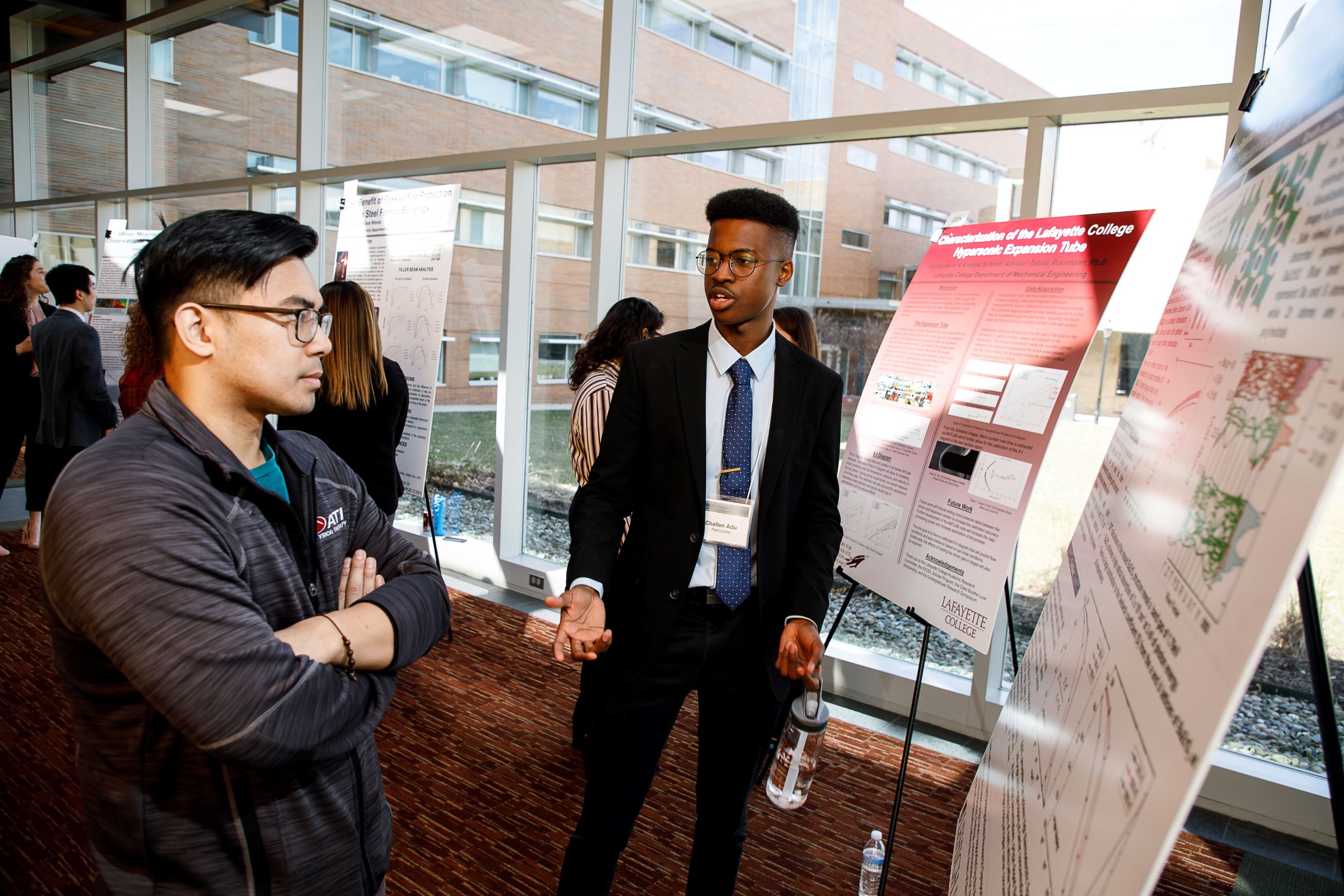
On Wednesday, April 6, Lehigh Engineering will celebrate student research—and engage in some friendly competition with Lafayette College—during the David and Lorraine Freed Undergraduate Research Symposium.
The symposium will return to an in-person format after going virtual in 2020 and 2021. Undergraduate students from the two institutions will present their research from 10 a.m. to 4 p.m., in the main lobby of the STEPS building, interacting with faculty, students, visitors, and staff throughout the day.
The event will conclude with an awards ceremony attended by Lehigh President Joseph J. Helble ’82, Rossin College Dean Stephen P. DeWeerth, and Andrew D. Freed ’83 ’17P, a member of the Lehigh Board of Trustees.
The symposium is endowed by Freed, in honor of his parents. Now retired, Freed most recently served as CEO of Micro-Coax, a manufacturer of electronic transmission devices based in Pottstown, PA. Freed holds a bachelor's degree in metallurgy and materials engineering from Lehigh and a master's degree in industrial administration from Carnegie Mellon University.
During the symposium, students will present their research before a panel of judges and respond to questions. Winners selected by the judging panel will receive scholarships to attend professional conferences. Symposium attendees are encouraged to participate in the event by casting a vote for the People’s Choice Award.
The symposium provides an opportunity for undergraduates to share work from a broad spectrum of engineering disciplines; this year, individuals and teams will present on topics including machine learning in cancer diagnosis and smart underwater sensors. The event highlights research achievement and group collaboration, celebrates experiential learning, and encourages students to use research to develop critical thinking skills and increase their ability to succeed professionally.
Visit the Undergraduate Research Symposium website for additional event details and to read more about this year's competitors.
Photo by John Kish IV
